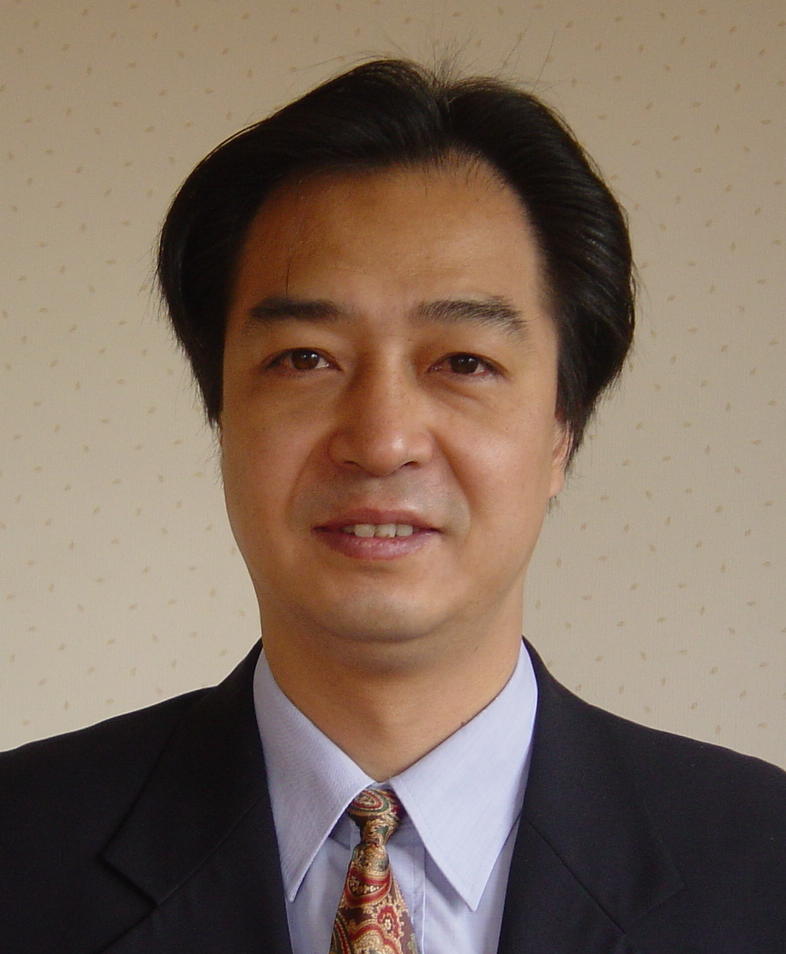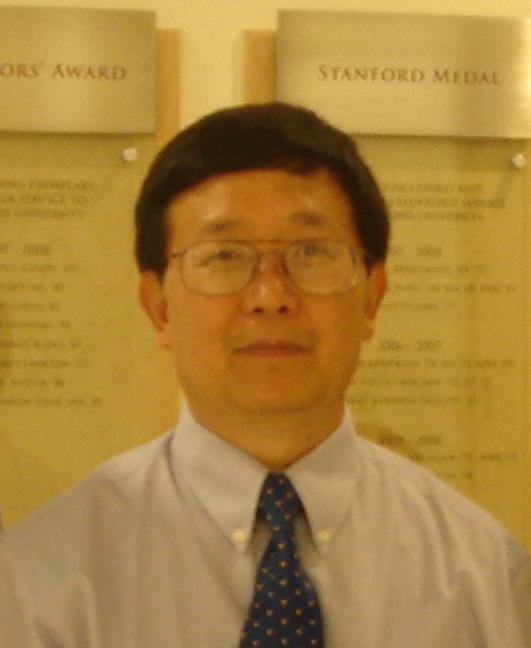|
AMT-BI 2010 Keynote Speakers
|
|
Fractionating the Rational Brain
 Professor Vinod Goel
Professor Vinod Goel
York University, Canada
http://www.yorku.ca/vgoel
Abstract:
Considerable progress has been made over the past decade in our
understanding of the neural basis of logical reasoning.
Unsurprisingly these data are telling us that the brain is organized
in ways not anticipated by cognitive theory. In particular, they're
forcing us to confront the possibility that there may be no unitary
reasoning system in the brain (be it mental models or mental logic).
Rather, the evidence points to a fractionated system that is
dynamically configured in response to certain task and environmental
cues. I will review three lines of demarcation including (a) systems
for heuristic and formal processes (with evidence for some degree of
content specificity in the heuristic system), (b) conflict
detection/resolution systems, and (c) systems for dealing with
certain and uncertain inferences; and then offer a tentative account
of how the systems might interact to facilitate logical reasoning.
Sensitivity to data generated by neuroimaging and patient
methodologies will move us beyond the sterility of mental models vs.
mental logic debate and further the development of cognitive theories
of reasoning.
Profile:
Vinod Goel studied architectural design and computer science as an
undergraduate. He received his PhD in Cognitive Science from UC-Berkeley,
followed by postdoctoral training in cognitive neuroscience at the NIH, USA
and Institute of Neurology/UCL, UK. He is currently a Professor of
Cognitive Neuroscience at York University, Canada, and the University of
Hull, UK. His research uses brain imaging (fMRI) and lesion analyses
techniques to study the cognitive, computational, and neural basis of
rational thought processes ranging from logical inference to design
problem-solving. This work has resulted in numerous, highly cited
publications and has been recognized by a number of awards, including the
McDonnell-Pew Program in Cognitive Neuroscience Award.
Active Smart u-Things and Cyber Individuals
 Professor Jianhua Ma
Professor Jianhua Ma
Hosei University, Japan
http://cis.k.hosei.ac.jp/~jianhua/
Abstract:
Due to the continuing miniaturization of chips and availability of wired/wireless communications, many kinds/forms of devices can be integrated into physical objects and ambient environments. The u-things, as opposed to pure digital e-things existing on computers/Web/Internet, are ordinary physical things with attached, embedded or blended computers, networks, and/or some other devices such as sensors, actors, e-tags and so on. Active smart u-things are ones that can, more or less, sense, compute, communicate, and may take some actions according to their goals, situated contexts, users’ needs, etc. Active smart u-things can be with different levels of intelligence from low to high, and in various intelligent forms, e.g., aware, context-aware, interactive, reactive, proactive, assistive, adaptive, automated, autonomic, sentient, perceptual, organic, life-like, cognitive, thinking, etc. Active smart u-things may cover innumerable types of physical things in the real world. They can be roughly classified into three categories, i.e., smart object, smart space and smart system, according to their appearances and functions. The grand challenge is how to enable these smart u-things to offer desired services to all people in right time, right place and right means with ubisafe guarantee. Furthermore, the essential and existence of human in cyber-physical combined spaces should be re-examined. The Cyber Individual, with a short term ‘Cyber-I’, is a real individual’s counterpart in cyberspace. Cyber-I can be seen as a comprehensive description of a real individual including one’s physical status, physiological states, psychological behaviors, personal features, social relations, history experiences, etc. Such kind of individual description and modeling is fundamental to offer personalized services to different users according to their needs and situations.
Keywords: u-thing, sensor, actuator, tag, robot, smart object, space and system, ubiquitous intelligence, cyberspace, cyber individual, user modeling.
Profile:
Jianhua Ma is a Professor at the Faculty of Computer and Information Sciences of Hosei University since 2000. Previously, he had 15 years' teaching/research experience at NUDT, Xidian University and the University of Aizu (Japan). His research from 1983 to 2003 covered wireless communications, data encryption, speech processing, multimedia QoS, 1-to-m HC hyper-interface, graphics ASIC, e-learning and virtual university, CSCW, multi-agents, Internet audio/video, mobile web service, P2P network, etc. Since 2003 he has been devoted to what he called Smart World/Hyperworld pervaded with smart physical u-things, characterized with Ubiquitous Intelligence (u-Intelligence, UI) for u-Services with UbiSafe guarantee. Dr. Ma has published over 200 papers in journals and proceedings, and edited over 10 books. He is a Co-Editor-in-Chief of JUCI, JMM, JoATC, JPCC and IJUNESST. He is on the editorial boards of IJCPOL, IJDET, IJWMC, IJSH, IJSIA, IJDTA, IJCIT and IJAS, and has edited over 15 journal special issues as a Guest Editor. He organized the 6th Int'l Conf. on Distributed Multimedia Systems (DMS'99) as a PC Co-Chair, the 1st Int'l Conf. on Cyber Worlds (CW'02) as one of founders and PC Co-Chairs, the 18th IEEE Int'l Conf. on Advanced Information Networks and Applications (AINA'04) as a General Co-Chair, and the 1st IEEE Int'l Conf. on Social Computing (SocialCom'09) as an Advisory Chair. He is a founder of Int'l Conf. on Ubiquitous Intelligence and Computing (UIC), Int'l Conf. on Autonomic and Trusted Computing (ATC), and IEEE/ACM Conf. on Cyber, Physical and Social Computing (CPSCom). He is a Chair of IEEE CIS Task Force on Autonomic and Trusted Computing, and a co-founder of IEEE Task Force on Ubiquitous Intelligence and Computing.
Technology-Mediated Social Participation: Deep Science and Extreme Technology

|
|
Photo by John Consoli, UMCP
|
Professor Ben Shneiderman
University of Maryland, USA
http://www.cs.umd.edu/hcil/
Abstract:
The dramatic success of social media such as Facebook, Twitter, YouTube,
Flickr, blogs, and traditional discussion groups empowers individuals to
become active in local and global communities. With modest redesign,
these technologies can be harnessed to support national priorities such
as healthcare/wellness, disaster response, community safety, energy
sustainability, etc. This talk describes a research agenda for these
topics that develops deep science questions and extreme technology
challenges.
Profile:
BEN SHNEIDERMAN (http://www.cs.umd.edu/~ben) is a Professor in the
Department of Computer Science and Founding Director (1983-2000) of the
Human-Computer Interaction Laboratory (http://www.cs.umd.edu/hcil/) at
the University of Maryland. He was elected as a Fellow of the
Association for Computing (ACM) in 1997, a Fellow of the American
Association for the Advancement of Science (AAAS) in 2001, and a Member
of the National Academy of Engineering in 2010. He received the ACM
SIGCHI Lifetime Achievement Award in 2001.
Ben is the co-author with Catherine Plaisant of "Designing the User
Interface: Strategies for Effective Human-Computer Interaction" (5th
ed., 2010) http://www.awl.com/DTUI/. With Stu Card and Jock Mackinlay,
he co-authored "Readings in Information Visualization: Using Vision to
Think" (1999). With Ben Bederson he co-authored "The Craft of
Information Visualization" (2003). His book "Leonardo's Laptop" appeared
in October 2002 (MIT Press) and won the IEEE book award for
Distinguished Literary Contribution. His latest co-authored book,
"Analyzing Social Media Networks with NodeXL" (www.codeplex.com/nodexl)
was published in August 2010.
Cognitive Informatics and Denotational Mathematical Means for Brain Informatics
 Professor Yingxu Wang
Professor Yingxu Wang
University of Calgary, Canada
http://enel.ucalgary.ca/People/wangyx/
Abstract:
The contemporary wonder of sciences and engineering has recently refocused on the beginning point of them: how the brain processes internal and external information autonomously and cognitively rather than imperatively as those of conventional computers. Cognitive Computing (CC) is an emerging paradigm of intelligent computing methodologies and systems that implements computational intelligence by autonomous inferences and perceptions mimicking the mechanisms of the brain. CC is emerged and developed based on the transdisciplinary research in cognitive informatics and abstract intelligence. Cognitive Informatics (CI) [Wang 2002] is a transdisciplinary enquiry of computer science, information science, cognitive science, brain science, and intelligence science that investigates into the internal information processing mechanisms and processes of the brain and natural intelligence, as well as their engineering applications. The theoretical framework of cognitive informatics covers the Layered Reference Model of the Brain (LRMB), the Object-Attribute-Relation (OAR) model of information representation in the brain, the cognitive informatics model of the brain, and neuroinformatics. Recent studies on LRMB in cognitive informatics reveal an entire set of cognitive functions of the brain and their cognitive process models, which explain the functional mechanisms and cognitive processes of the natural intelligence with 43 cognitive processes at seven layers known as the sensation, memory, perception, action, meta-cognitive, meta-inference, and higher cognitive layers from the bottom up. Abstract Intelligence (αI) [Wang, 2008] and Denotational Mathematics (DM) [Wang, 2000, 2009] play an important role in cognitive informatics, brain informatics, and cognitive computing. αI is a universal mathematical form of intelligence that transfers information into actions and behaviors; while DM is a category of expressive mathematical structures that deals with high-level mathematical entities beyond numbers and sets, such as abstract objects, complex relations, perceptual information, abstract concepts, knowledge, intelligent behaviors, behavioral processes, and systems. The latest advances in CI and CC have led to a systematic solution for explaining brain informatics and the future generation of intelligent computers. A wide range of applications of CI, αI, CC, and DM have been recognized in brain informatics toward the implementation of highly intelligent systems such as world-wide wisdom (WWW+), cognitive knowledge search engines, autonomous learning machines, and cognitive robots.
Profile:
Dr. Yingxu Wang is professor of cognitive computing and software engineering, Director of International Institute of Cognitive Informatics and cognitive computing (IICICC), and Director of Theoretical and Empirical Software Engineering Research Center (TESERC) at the University of Calgary, Canada. He is a Fellow of WIF, a P.Eng of Canada, a Senior Member of IEEE and ACM, and a member of ISO/IEC JTC1 and the Canadian Advisory Committee (CAC) for ISO. He received a PhD in Software Engineering from the Nottingham Trent University, UK, in 1997, and a BSc in Electrical Engineering from Shanghai Tiedao University in 1983. He has industrial experience since 1972 and has been a full professor since 1994. He was a visiting professor in the Computing Laboratory at Oxford University in 1995, Dept. of Computer Science at Stanford University in 2008, and the Berkeley Initiative in Soft Computing (BISC) Lab at University of California, Berkeley in 2008, respectively. He is the founder and steering committee chair of the annual IEEE International Conference on Cognitive Informatics (ICCI). He is founding Editor-in-Chief of International Journal of Cognitive Informatics and Natural Intelligence (IJCINI), founding Editor-in-Chief of International Journal of Software Science and Computational Intelligence (IJSSCI), Associate Editors of IEEE Transactions on System, Man, and Cybernetics (Part A), Journal of Advanced Mathematics and Applications (JAMA), and International Journal of Applied Metaheuristic Computing (IJAMC), as well as Editor-in-Chief of CRC Book Series in Software Engineering.
Prof. Wang is the initiator of a number of cutting-edge research fields or subject areas such as cognitive informatics, abstract intelligence, cognitive computing, cognitive computers, denotational mathematics (i.e., concept algebra, system algebra, real-time process algebra, granular algebra, visual semantic algebra, and inference algebra), software science (i.e., theoretical software engineering and mathematical laws of software engineering), coordinative work organization theory, deductive semantics, LRMB, the reference model of autonomous agent systems, cognitive complexity of software, and built-in tests (BITs). He has published over 110 peer reviewed journal papers, 200+ peer reviewed full conference papers, and 12 books in cognitive informatics, software engineering, and computational intelligence. He is the recipient of dozens international awards on academic leadership, research achievements, best papers, and teaching in the last 36 years.